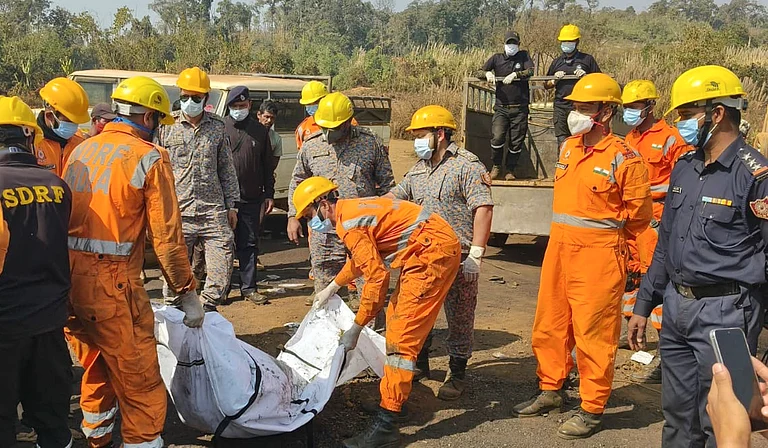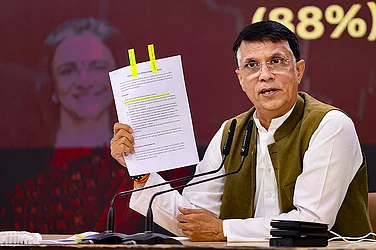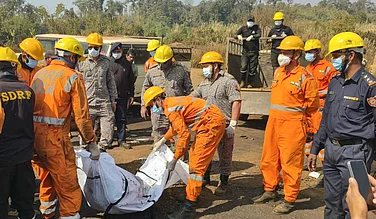Sitting on a leather couch in his air-conditioned office in the Leather Complex at Focal Point Industrial Area in Jalandhar, Steven Kler directs his work-force to switch on a leather cutting machine to complete an order from an Italian company selling expensive branded goods. Kler’s job is to get the cattle hide processed for the Italian company to turn it into bags, shoes and much else. Kler has an annual turnover of Rs 14 crore.
Kler says there is no real reason why his father, Mool Raj, decided to name him Steven. He insists his family hasn’t converted. It could just be the prospect of prosperity that made Mool Raj give his son a name that did not remind him of his caste. Mool Raj was a Dalit who practised his caste-occupation of disposing of and skinning dead cattle, but he was enterprising. So he broke the mould, scaled up and opened a small-scale leather-processing unit at Bootan Mandi in Jalandhar, the old marketplace for cattle skin and leather goods.
Now, his prosperity is under threat. The cattle vigilantes have made a huge impact on the leather business, particularly the procurement of the skin of dead animals. “We are dependent on skin from Uttar Pradesh and other parts of Punjab. However, after the recent controversy, there is a big shortage of skin as people just do not want to get into trouble for carrying cattle skin,” said Kler.
It is the unbearable stench of raw skin that welcomes anyone to the leather complex on the outskirts of the city. There are only leather factories in the neighbourhood and they all procure skin from various Indian states as well as foreign countries to process it. The odour of rotting cattle skin is what 45-year-old Kler has breathed in and out all day, all his life. “My brother, an MLA from the ruling Shiromani Akali Dal (SAD), is unable to take care of the business due to his busy schedule, so I have to do it. I come to the factory at nine in the morning and go back at six in the evening,” he says. His wife is a Punjab civil services officer and is posted in the Local Bodies Department in the Ludhiana district of Punjab.
Kler, a director of Avinash Tanneries, also has a factory at Bootan Mandi, which he rarely visits as it is situated deep inside the city and lacks proper access. The tannery at Bootan Mandi serves as a back-up when his order books get filled up.
When Mool Raj set up the unit at Bootan Mandi, it was a linear progression from a caste-based occupation to a business that is solely dependent on that occupation. But as the leather business became lucrative in Jalandhar, it increasingly started becoming the preserve of non-Dalits. Ironically, though, the workforce is still largely Dalit. “There are only about four Dalits who own tanneries in the leather complex built in 1985, especially to promote leather export. I export leather to European countries, including Italy and Germany,” says Kler.
He visits Europe at least four times a year and is planning to visit the UK next month as he has come to know that the cost of raw leather in the market has come down. “Synthetic leather has made a severe dent in the leather industry.,” he says. “China-made synthetic leather has created a tough competition for us because the shortcomings that synthetic leather is known to come with have been rectified by Chinese producers.”
Built on one acre of land, Kler’s factory has nearly a dozen processing machines, out of which half have been imported from Italy and other European countries. Even the chemicals used in the factory are imported. The imports have cost him nearly Rs 12 crore. “We produce high-quality leather on which we cannot compromise. The best machines have been imported from other countries to produce this leather,” says Kler.
But all this could change overnight if all avenues of upward mobility for Dalits get shut by cow vigilantes stopping the transport of cattle hide.
By S.P. Sharma in Jalandhar





















